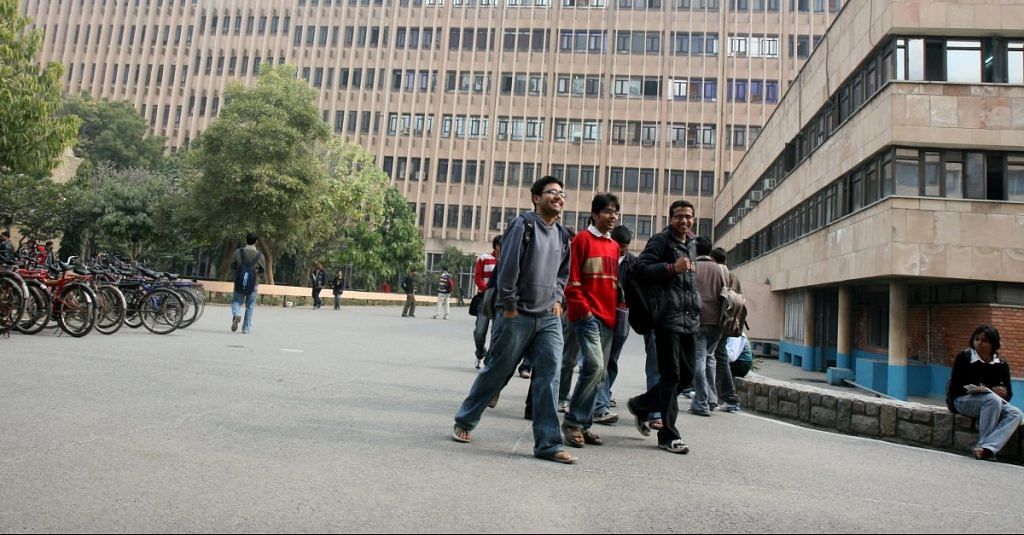UPSC aspirants at Delhi’s coaching hub and engineers at IIT cheered the move but also cautioned that transparency and neutrality may be compromised.
New Delhi: Students aspiring to join the ranks of the country’s steel frame, the bureaucracy, are delighted at the government’s move to open up the system to include private sector professionals and domain experts.
The news was received with much enthusiasm in Delhi’s Mukherjee Nagar, the nerve centre of coaching schools in the capital, and the elite corridors of IIT-Delhi. There were a few voices of caution as well.
Better management
Most IAS aspirants believe the lateral entry scheme will boost productivity of work. People with domain knowledge will certainly perform much better, was the chorus at Mukherjee Nagar.
“A person who has done several years of work in the same field will certainly have more experience than us,” said UPSC aspirant Amit Dey from Kolkata.
Dev Thakur, who is from Kanpur, said: “People will be able to pursue their passions, which will make them much more productive and help them do greater justice to the job.”
Pooja Choubey, an IAS aspirant from Noida said the move is beneficial for people who have been working for a long time in their own field and have accumulated considerable experience.
Gautam Chaudhary, who runs a private coaching centre in Mukherjee Nagar, too applauded the move.
“At the top level we need experts to perform. We have seen how people in the private sector have been able to demonstrate higher performances, so inducting them into the public sector will be a good move.”
Backdoor entry
But Chaudhary also advised caution. On paper it might look as if the job goes to the best man or woman, he said, but the possibility that a government might stuff the civil service with its own people remains high.
“The question of back-door entry, of trust between the government and the supposedly neutral civil service, must be addressed,” he said.
Ravishankar, an IAS aspirant from Patna, agreed. “There is the possibility that bureaucrats will favour friends and family,” he said, pointing out that the “question of bias” remains high and must be addressed.
Students are also worried that their hard work will go to waste.
“I had to leave engineering and start studying for the UPSC exam. This is the second-time I am attempting it. My time has been wasted as a result of switching fields,” said Dev Thakur.
The mood at IIT Delhi
In sharp contrast, a majority of students and researchers at IIT Delhi welcomed the step. They said the lateral entry scheme will reform the way India works and significantly improve administrative efficiency.
“Decision-making quality will improve. Today, people in the civil services are forced to take decisions in areas they know nothing about,” said Vikas Sharma, a post-doctoral fellow.
“For example, an official with a humanities background is forced to take decisions in specialised areas like science and information technology. This makes no sense. But with outside experts who have domain knowledge, the quality of decisions will definitely improve,” he said.
According to Sharma, India’s bureaucracy has lost its competitive edge. “If this step leads to greater efficiency, it might improve its image.”
But Janmajay Kumar, a project associate, felt that improved efficiency would be limited to certain spheres only.
“Areas such as finance, commerce, trade and sciences require a different set of skills and exposure that might be better found in people coming from the corporate world and experience. But for other positions where technical knowhow isn’t that essential, ordinary civil servants can perform as well,” Kumar said.
Gurjinder Singh, working on his second attempt to crack the UPSC exam, said the step will push civil servants to drop their old ways and learn to compete with specialists from the outside world.
“They will stop taking their jobs for granted. They will have to prove why they continue to deserve that position,” he said.
Gurjinder said because of the new plan he feels relaxed. “I thought if I didn’t clear the civil services exam, I would never be able to enter the system. But now I know I can do well in my job for the next 15 years and still make it.”
Brain Drain
Several students felt the lateral entry scheme would encourage qualified engineers to stay and serve their country, instead of looking for greener pastures abroad.
“The opening up of opportunities may even help reverse brain drain, as people bring back the best practices they have learnt abroad,” said Sharma.
But Balwant Chauhan, who completed his M.Tech this year, said the real problem with the bureaucracy was that it needed substantial overhaul and steps like lateral entry only tinkered with the system.
After all, people like Raghuram Rajan and Arvind Panagariya were both lateral entrants into the RBI and Niti Aayog, Chauhan pointed out, but were they able to change the internal processes of these institutions?
“To become a professor in IIT, you need to prove yourself constantly, by writing papers and doing research. The hiring policy is rigorous, which is why the top-quality teaching is able to produce top-quality students. The UPSC must approach its potential cadre with the same mindset,” he said.
Concerns ahead
Singh insisted that the new steps will only work if recruitment procedures are kept transparent. “If key positions are still determined by politicians then this policy may not serve the purpose,” he said.
Kumar also pointed out that the autonomy of institutions might be at risk.
“Today the government has control over key institutions essential for maintaining the checks and balances in a functional democracy like India. For example, the CBI or the Election Commission. These officials are mostly neutral, they don’t have much autonomy. But if people are handpicked by the government and placed in these key positions, then the autonomy of those institutions may deteriorate,” he said.
पढ़ें हिंदी में: सिविल सेवाओं में लेटरल एंट्री: आईएएस उम्मीदवार खुश,आईआईटी वालों की ख़ुशी का ठिकाना नहीं
